16. Audacious
Primarily designed for POSIX-compatible platforms like Linux with added support to Windows, Audacious is an open-source audio player and default music player for Lubuntu and Ubuntu Studio. It is entirely written in C++ with the latest version being 3.4 released in June 2013.
Audacious is one of the players with a wide variety of features, most of which are available through external plugins namely: Decoder, Transport, Output, Effect plugin, etc. Apart from this, it has support for a wide variety of codecs namely few of which are: Mp3, FLAC, Wavpac, TTA, Shorten, MIDI, etc.
It has full support for Winamp 2 skins and with all skins usually rendered in png format, it allows users to render the skins adjusting the RGB color balance by themselves. Even after being a standalone player, it accepts connections from client software like Conky.
Install Audacious Music Player
# apt-get install audacious [On Debian based systems] # yum install audacious [On RedHat based systems] # dnf install audacious [On Fedora 22+ versions]
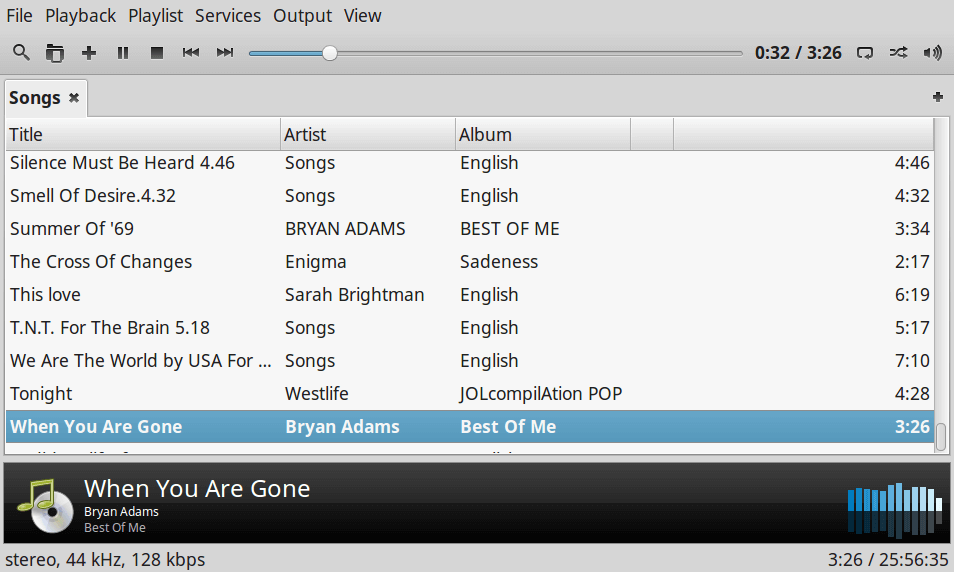
17. Rhythmbox
Written in C and released for Unix like systems like BSD, GNU/Linux, and Solaris, Rhythmbox is an audio player that plays and helps organize digital music. It is a default music player for Ubuntu Linux system. Works well under the GNOME desktop environment with the GStreamer media framework.
With a good looking user interface, Rhythmbox provides various features like gapless playback, Last.fm support through which it can stream online music, Audio CD burning, Music importing. It can integrate into a countless number of platforms very efficiently. Versions of Rhythmbox above 0.10.0 support DAAP sharing. Additionally, it uses udev subsystem of Linux to detect the device chosen for playing music.
Install Rhythmbox Music Player
# apt-get install rhythmbox [On Debian based systems] # yum install rhythmbox [On RedHat based systems] # dnf install rhythmbox [On Fedora 22+ versions]
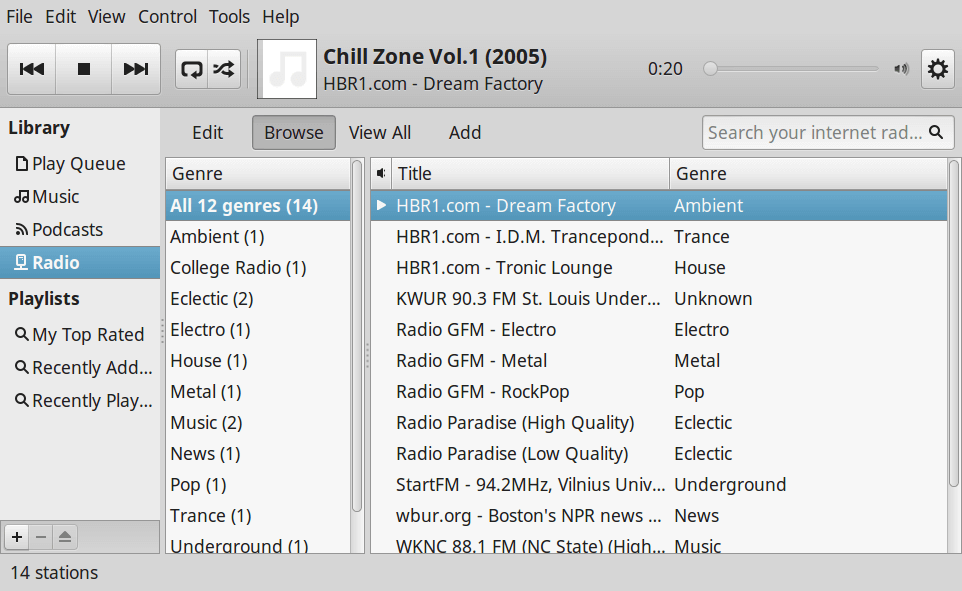
18. DeaDBeeF
Written in C, DeaDBeeF is a lightweight but powerful music player released under GPLv2 for Linux and Android. Most of the external plugins supported by DeaDBeeF are written in C++ and interface uses GTK2.
One of the major advantages it holds above many audio players is low memory consumption. It can play a large number of formats including but not limited to mp3, Ogg, Wav, m4a, etc.
Other notable features include Online and Offline streaming of music, 18-band equalizer support, gapless playback, Cuesheet support, Last.fm support etc.
Install DeadBeeF Music Player
# apt-get install deadbeef [On Debian based systems] # yum install deadbeef [On RedHat based systems] # dnf install deadbeef [On Fedora 22+ versions]
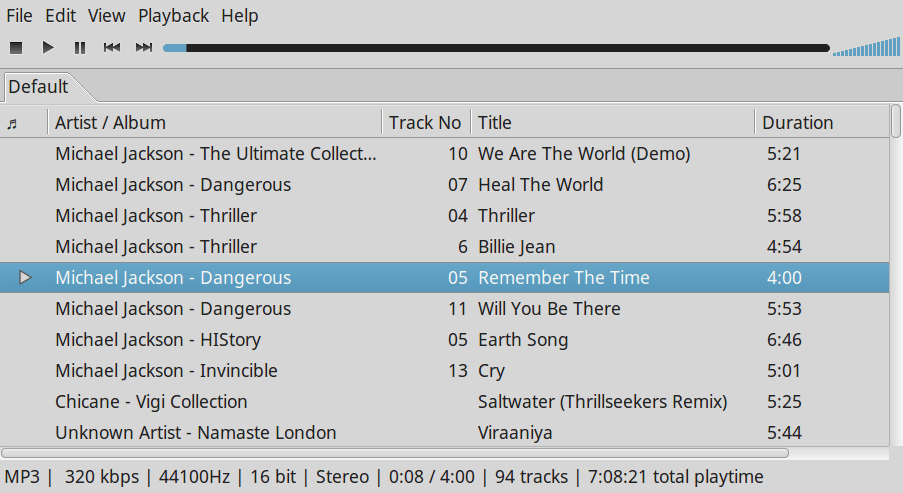

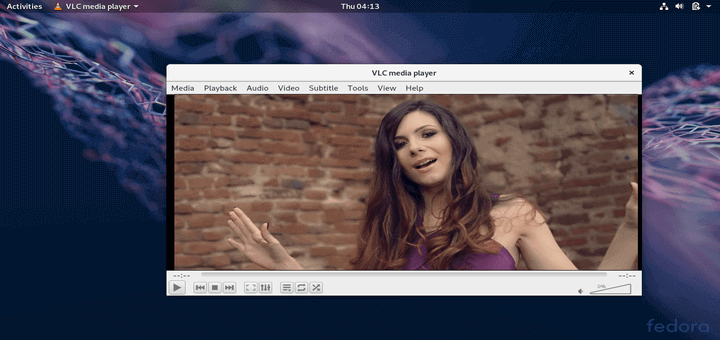
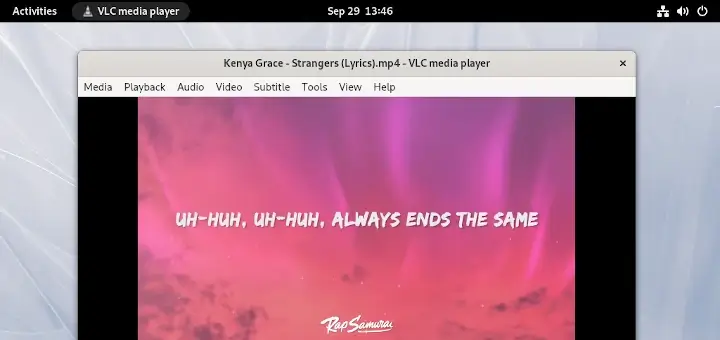
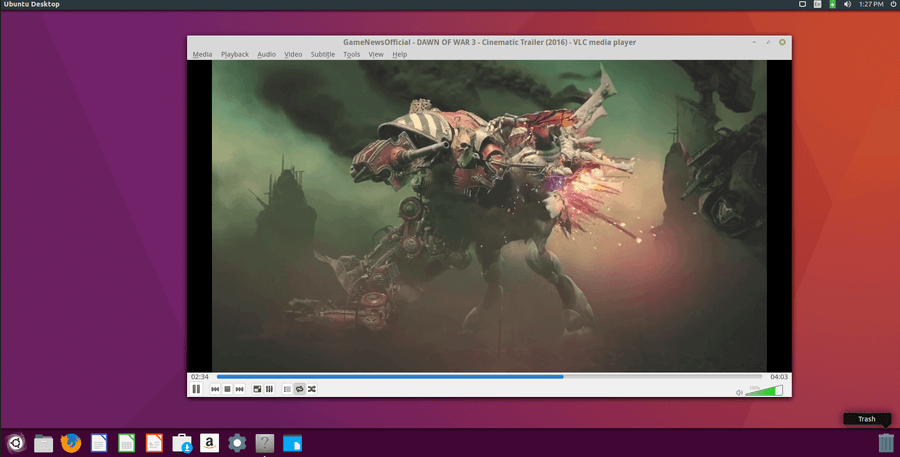


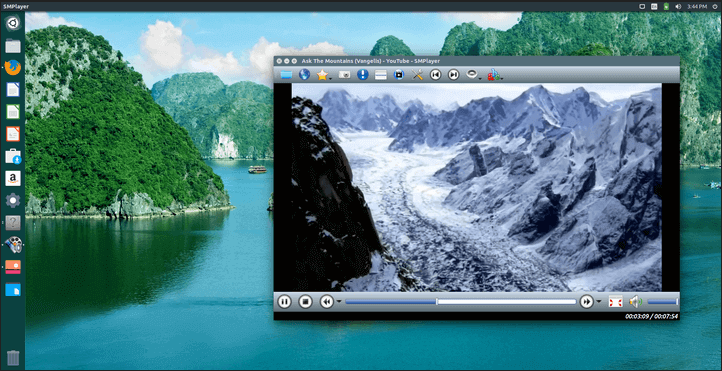
Does any of these players have a “Quick sort and trash” functionality or can be modified to have one? The behavior I want ideally after activating “Quick sort and trash” mode with a button or script:
If the value is “delete” then it deletes the file. Alternatively, the player has a “delete all files with a certain tag” option that can have a confirmation prompt.
I thought that Cmus could be persuaded to such behavior with Autokey but it does not seem to have any file modification functionality despite being a command-line tool.
Quod Libet with Autokey might work, but it requires calling up a context menu to create a tag, no hotkey possible, which makes it slow and unreliable.